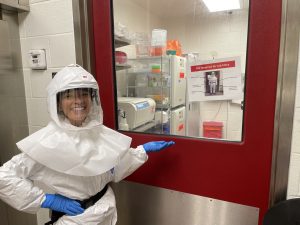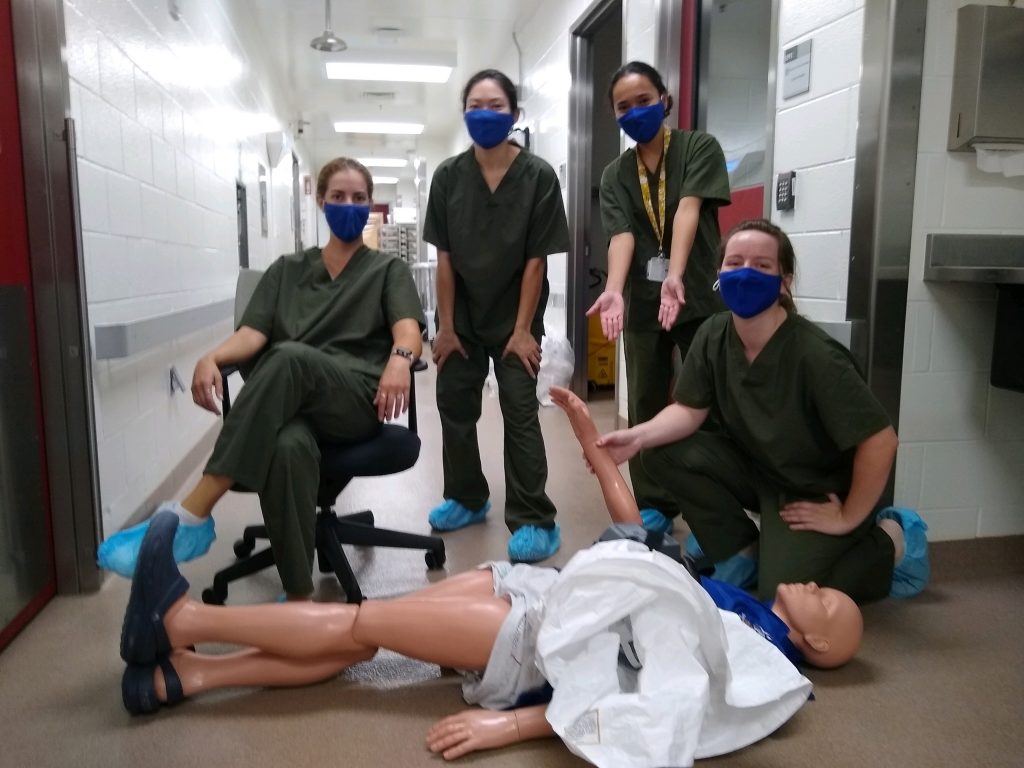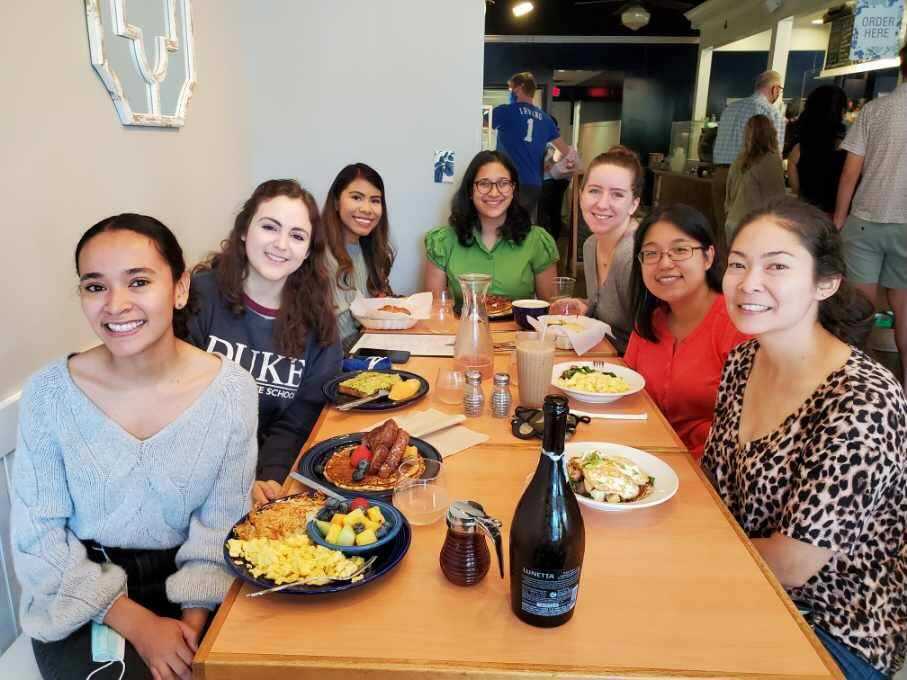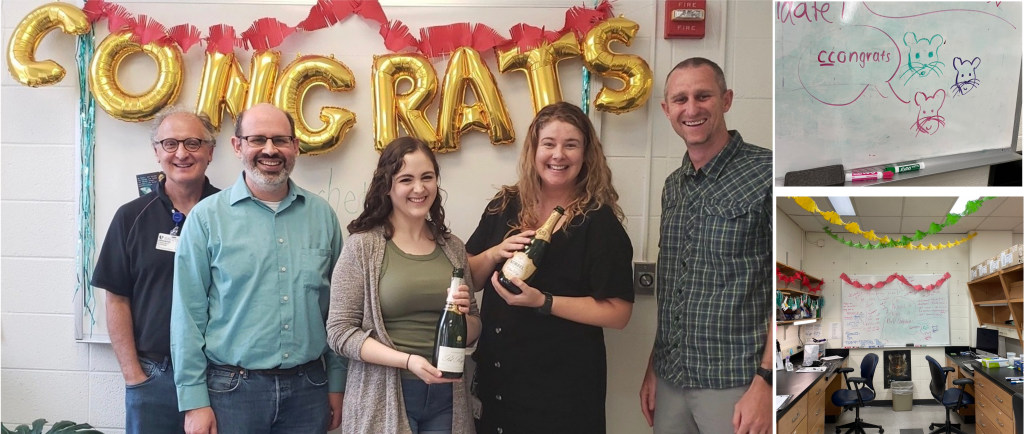
The Smith lab hosted Emma Heckenberg as the second rotation student this fall. Emma is a first-year Ph.D. student in the MGM graduate training program.
During her Smith lab rotation, Emma worked on a collaboration with the Coers lab elaborating the role of immunity-related GTPase M (IRGM) genes on tuberculosis pathogenesis. With a passion for wet lab experimentation, Emma dove into biosafety level-3 (BSL3) work, learning mouse husbandry, BSL3 safety and methods, and infected animal experimentation. Throughout her rotation, Emma collaborated with Carissa Harvest in the Miao Lab to kick start a staining protocol in the Smith lab and also garnered a new set of data tidying and exploration skills in R.
The Smith lab will miss Emma’s infectious excitement for science and wishes her well in her future rotations!







 The Smith Lab concluded a year of excellent rotations by hosting Margaret Gaggioli as a rotation student this spring.
The Smith Lab concluded a year of excellent rotations by hosting Margaret Gaggioli as a rotation student this spring. The Smith Lab enjoyed hosting Emily Engeman as a rotation student this spring.
The Smith Lab enjoyed hosting Emily Engeman as a rotation student this spring.


